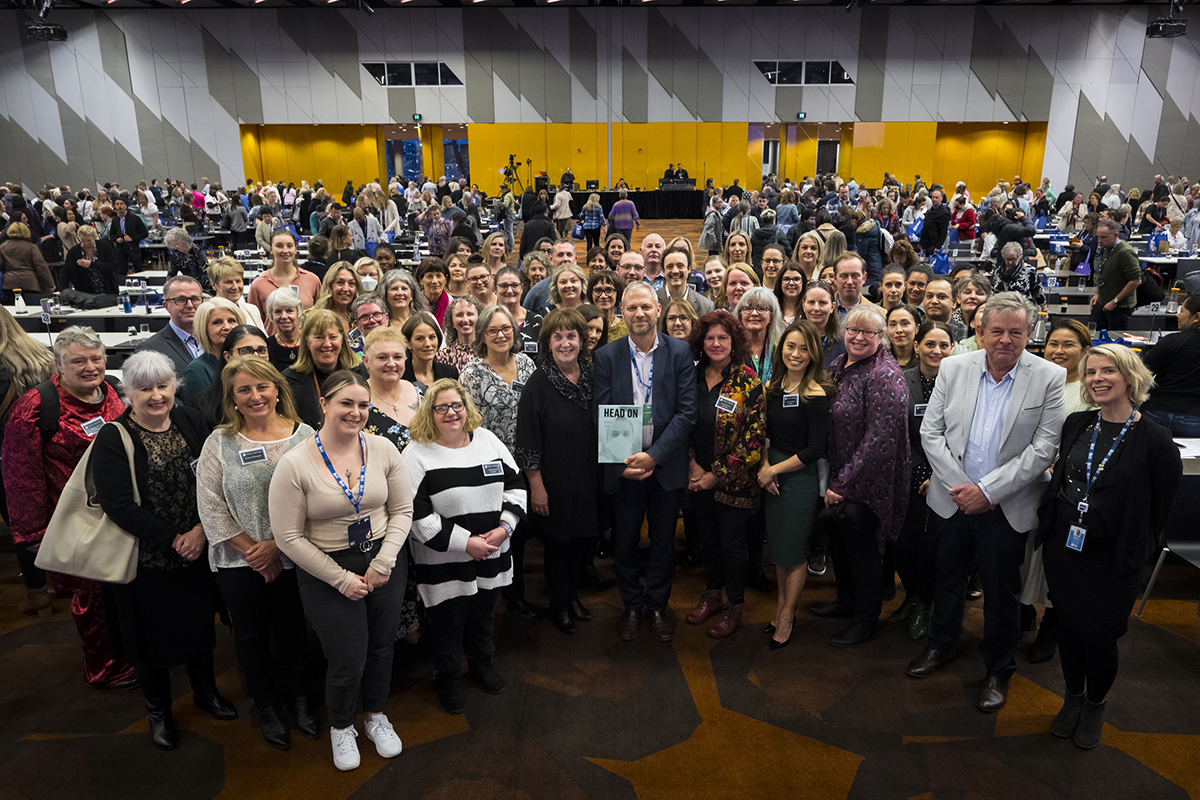
Rachel Schutze, Principal Lawyer, Gordon Legal
In a recent message to members on the ANMF Instagram page, ANMF (Vic Branch) Secretary Lisa Fitzpatrick said the following:
‘Bone-weary nurses and midwives are facing a surge of patients never seen before in our lifetime. You are facing the most challenging state of the pandemic. The timing has no regard for your desperate need of a break. Pandemics never do. It’s taking a toll on all of you now and we know it will have an impact for some time.’
As a personal injury lawyer at Gordon Legal, I have the privilege of representing nurses and midwives in relation to their WorkCover, TAC and Public Liability claims.
In the last 18 months, I have spoken with many nurses and midwives, and to those who assist and support them at the ANMF. What is clear in my interactions is that the pandemic is having a very significant impact on them. Lisa’s message reflected what I have heard.
Overworked and fatigued
One of the known impacts of overwork and being overloaded in work is fatigue. The Safe Work Australia website says that:
‘Fatigue is more than feeling tired and drowsy. In a work context, fatigue is mental and/or physical exhaustion that reduces your ability to perform your work safely and effectively. Signs of fatigue include:
- tiredness even after sleep
- reduced hand-eye coordination or slow reflexes
- short term memory problems and an inability to concentrate
- blurred vision or impaired visual perception
- a need for extended sleep during days off work.’
The extended demands of the COVID-19 pandemic on nurses midwives and carers will see them work more hours than they would normally work. It will see those hours of work be more arduous.
The United States Department of Labor website in relation to occupational safety and work administration says that ‘worker fatigue increases the risk for illnesses and injuries. Accident and injury rates1 are 18% greater during evening shifts and 30% greater during night shifts when compared to day shifts. Research indicates that working 12 hours per day is associated with a 37% increased risk of injury2. In a 2005 study reporting on a survey of 2737 medical residents, every extended shift scheduled in a month increased by 16.2% monthly risk of a motor vehicle crash during their commute home from work.’
Physical and psychological effects
Managers will try to ensure work conditions, rosters, shift allocations and job requirements are managed as best as possible to reduce the risks of fatigue on nurses and midwives. The pandemic will be trying to do the opposite.
At Gordon Legal we are seeing the effects that the pandemic, and its associated fatigue, is having on nurses and midwives.
I have spoken with nurses whose psychological health has been impacted by the increased workload and the stress it has imposed on them. They have been diagnosed with psychological illnesses and may be impacted by these in the short, medium or long-term.
I have spoken with nurses who have had dermatological conditions as a result of the increased usage of hand sanitiser. These conditions can be debilitating. They can be temporary in terms of days, or can last for months – even with the best treatment.
I spoke with a nurse recently who suffered a physical injury when fatigued and had slowed reactions causing her to misstep, fall and injure her knee. A specialist opinion awaits.
Ongoing impact
An article published by ABC News online on 21 September 2021 stated that ‘Data shows around the world between 5 and 13 percent of all COVID cases will end up with ongoing health issues, but studies are ongoing.’ This will impact nurses and midwives.
What is common in my discussions with nurses and midwives is their desire not to complain, not to make a fuss. They are unwilling to report their work-related illness or injury to their employer or to lodge WorkCover claims to protect their rights and entitlements.
Please look after yourselves. Please be aware, more than ever, of the signs of fatigue and its potential impacts. Please report incidents and injuries. Please lodge WorkCover claims if you have a work-related injury. Please seek advice about your rights and entitlements if injured and unsure.
I know it is easy for a personal injury lawyer to recommend that nurses midwives and carers put themselves first, and that it is hard for you to do so. Please try. We need you more than ever.




